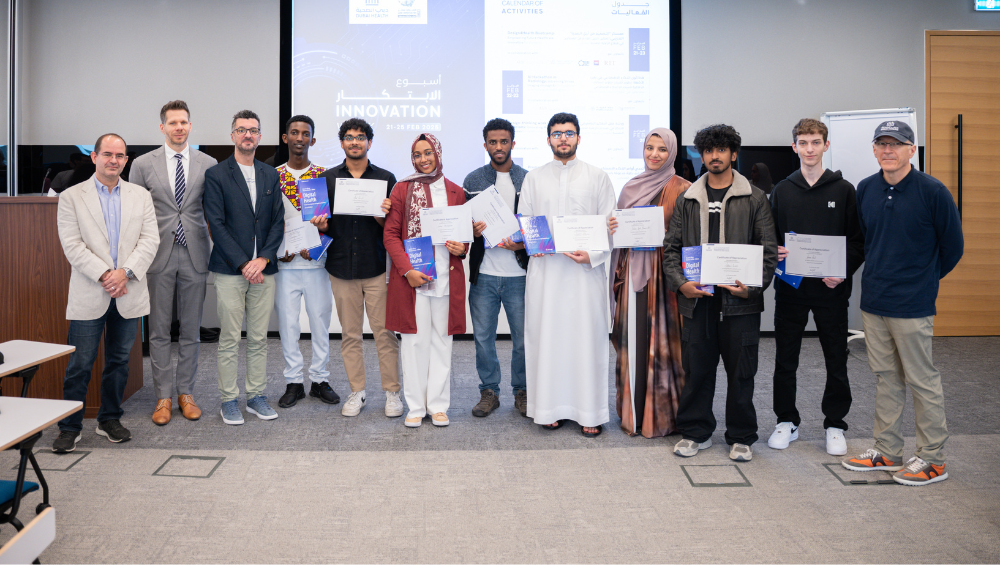New Discovery at Mohammed Bin Rashid University of Medicine and Health Sciences Identifies Genetic Cause of a Rare Childhood Growth and Developmental Condition
Scientists at Mohammed Bin Rashid University of Medicine and Health Sciences (MBRU), which leads the Learning and Discovery missions of Dubai Health, have identified a novel genetic disorder affecting children’s growth and development. Published in a leading journal, The American Journal of Human Genetics, this study identifies a problem in the FBXO22 gene, which causes various health issues in children, including growth restriction, intellectual disability, and other physical challenges. This discovery could enable more accurate diagnosis and genetic counseling, supporting informed family planning and long-term care for affected families.
Professor Alawi Alsheikh-Ali, Chief Academic Officer of Dubai Health and Provost of MBRU, said, “At Dubai Health, research is central to how we advance patient care and serve our communities. This study highlights the power of global collaboration and the impact of translational research at MBRU. We are proud to lead this important genetic discovery as part of a global collaboration and generate knowledge that holds real promise for patients and their families.”
The study included an international team of scientists and clinicians, led by Dr. Ahmad Abou Tayoun from MBRU. The team identified that mutations in the FBXO22 gene impair its function, leading to various developmental abnormalities. These include severe pre- and postnatal growth restrictions, intellectual disability, and additional complications affecting the cardiac, gastrointestinal, and skeletal systems.
Dr. Ahmad Abou Tayoun, Associate Professor of Genetics at MBRU and Director of Dubai Health’s Genomic Medicine Center, said, “This study demonstrates how genetic research on local populations can uncover the root causes of complex pediatric conditions, provide a framework for more accurate diagnosis and counseling, and contribute to global efforts to better understand the human genome. Through this discovery, we can provide a framework for more accurate diagnosis and genetic counseling, offering affected families meaningful answers to support future family planning. This work also highlights the importance of close collaborations with clinical teams, particularly the endocrinology team led by Dr. Nandu Thalange, who first identified and investigated the index case.”
The study included 16 cases from 14 families across the UAE, Saudi Arabia, Oman, and Lebanon. The team used advanced short- and long-read sequencing technology to study the children’s DNA and find the FBXO22 problem. The condition showed overlapping features with other known genetic disorders, further highlighting the critical role of FBXO22 in normal growth and development.
Dr. Fahad Ali, Assistant Professor of Molecular Biology at MBRU, said, “A key aspect of this study was identifying a unique marker in the blood that serves as a molecular fingerprint for this condition. This discovery could pave the way for a simple diagnostic test, enabling earlier detection and better support for affected families.”
The study was supported by funding from the Al Jalila Foundation, MBRU, and the King Abdullah University of Science and Technology (KAUST) Center of Excellence for Smart Health, among others. It reflects MBRU’s ongoing mission to address pressing health challenges through innovative research and global partnerships.


